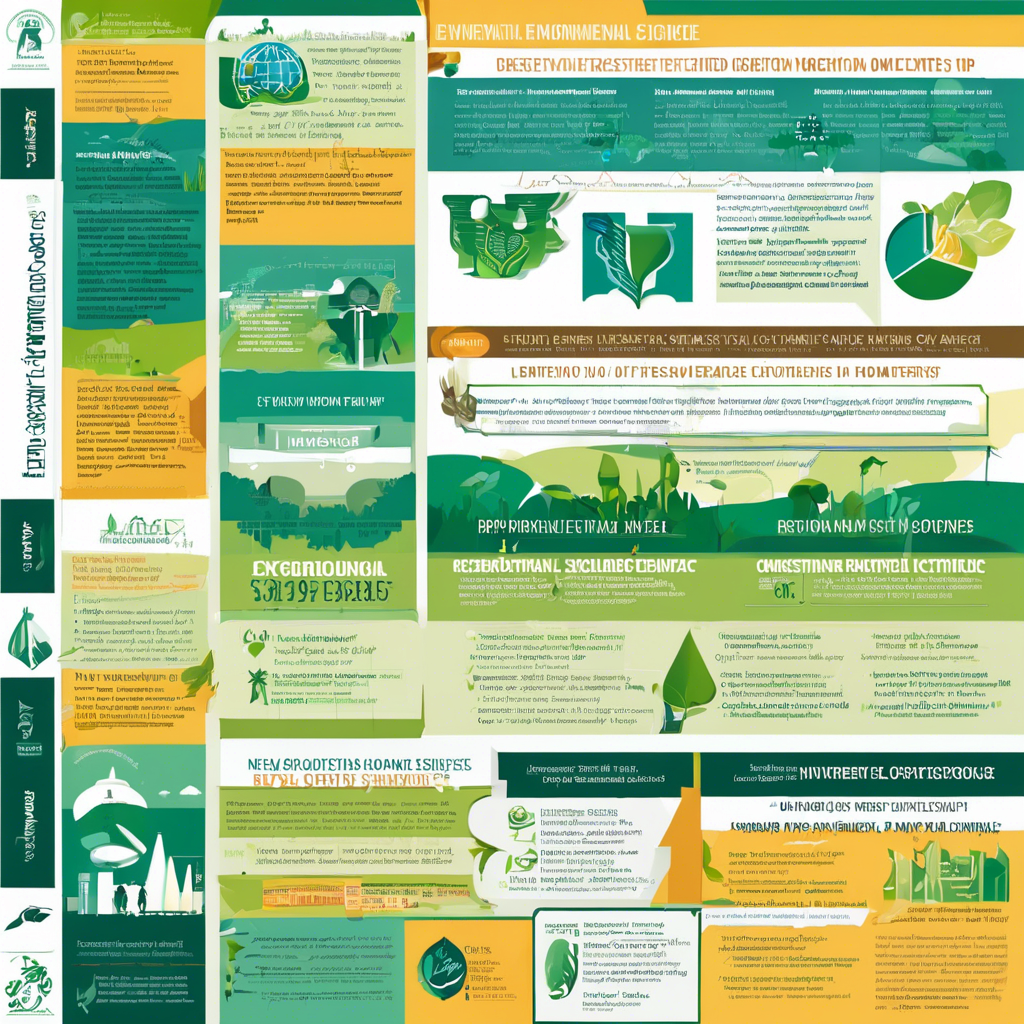Environmental science degrees online offer students the opportunity to study the natural world and the impact of human activities on the environment from the comfort of their own homes. With the increasing importance of environmental issues, pursuing a degree in environmental science online can be a convenient and flexible option for those interested in the field. These programs provide students with a solid foundation in environmental science, preparing them for careers in various sectors such as conservation, sustainability, and environmental policy.
One of the key advantages of pursuing an environmental science degree online is the flexibility it offers. Students can access course materials, lectures, and assignments at their own pace, allowing them to balance their studies with work or other commitments. This flexibility is particularly beneficial for working professionals or individuals with busy schedules who may not be able to attend traditional on-campus classes.
Another benefit of online environmental science degrees is the ability to study from anywhere in the world. This opens up opportunities for students who may not have access to a local university offering environmental science programs or who prefer the convenience of studying from home. Online programs also allow students to connect with professors and classmates from diverse backgrounds, providing a rich learning experience.
Online environmental science degrees often incorporate interactive technologies and multimedia resources to engage students in their learning. Virtual labs, video lectures, and online discussion forums enable students to participate in hands-on learning experiences and collaborate with peers, enhancing their understanding of complex environmental concepts. These interactive tools help simulate real-world environmental scenarios, preparing students for practical applications in their future careers.
In addition to the flexibility and accessibility of online programs, environmental science degrees also offer a wide range of specialization options. Students can choose to focus on areas such as environmental policy, sustainability, conservation biology, or environmental health, tailoring their degree to align with their interests and career goals. Specialized coursework provides in-depth knowledge and skills in specific environmental fields, making graduates more competitive in the job market.
Many online environmental science programs also incorporate fieldwork opportunities, internships, or research projects to provide hands-on experience and practical skills. These experiential learning opportunities allow students to apply their theoretical knowledge in real-world settings, gaining valuable insights and building a professional network in the environmental science industry.
Furthermore, pursuing an environmental science degree online can be cost-effective compared to traditional on-campus programs. Online students can save on commuting expenses, accommodation costs, and other fees associated with attending a physical campus. Additionally, many online programs offer financial aid options, scholarships, or flexible payment plans to help make higher education more accessible and affordable.
The online learning environment also fosters self-discipline, time management, and independent learning skills, which are highly valued by employers in the environmental science field. Students in online programs must be proactive in managing their study schedules, meeting deadlines, and seeking support when needed, cultivating essential skills for success in their future careers.
Another advantage of online environmental science degrees is the opportunity for career advancement and professional development. Graduates with a degree in environmental science can pursue various career paths in government agencies, non-profit organizations, consulting firms, research institutions, or corporate sustainability departments. Online programs provide the necessary knowledge and skills to address complex environmental challenges and make a positive impact on the planet.
Moreover, online environmental science degrees are designed to be inclusive and accessible to students from diverse backgrounds, regardless of geographic location, age, or prior educational experience. This diversity enriches the learning environment and encourages collaboration, critical thinking, and innovation in addressing environmental issues on a global scale.
Online environmental science programs also emphasize the importance of sustainability, ethics, and social responsibility in environmental decision-making. Students learn how to analyze environmental problems, develop sustainable solutions, and communicate effectively with stakeholders to promote environmental stewardship and conservation efforts. These values are integral to the practice of environmental science and are essential for creating a more sustainable future for our planet.
In conclusion, pursuing an environmental science degree online offers numerous benefits for students seeking a flexible, engaging, and impactful educational experience. Online programs provide the opportunity to study environmental science from anywhere in the world, access interactive learning resources, specialize in specific areas of interest, gain practical experience, and develop essential skills for a successful career in the environmental science field. By choosing to pursue an online environmental science degree, students can contribute to a more sustainable and environmentally conscious world through their knowledge, expertise, and passion for protecting the planet.
